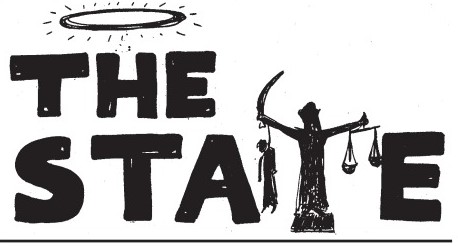This editorial was first published in Manushi, issue no-49 in 1988.
THE year has begun with a brutal travesty of justice. Thanks to the untiringly courageous efforts of renowned advocate Ram Jethmalani, it is now widely known that the evidence against Kehar Singh in the case of conspiracy to assassinate Indira Gandhi was absurdly flimsy, substantially amounting to no more than his having had some private conversations with Beant Singh. Yet, the supreme court chose to uphold the death sentence for Kehar, and the president refused to extend mercy, ignoring the many pleas from eminent thinkers, jurists, and ordinary citizens. Kehar Singh and Satwant Singh were hanged on January 6, 1989.
In the Kehar Singh controversy, the question of whether capital punishment itself is ethically justifiable has hardly been raised. Even people who in their private lives, shrink from bloodshed, often tend to assume that capital punishment is necessary, even desirable.
Capital punishment is nothing but premeditated murder by the State. If killing by an individual from motives of revenge, greed or passion, is wrong, how can killing of an unarmed individual by a paid employee (the hangman) on the orders of a group of people, be right? The taking of a second life does not restore the first life that was taken, nor do two wrongs make a r

Capital punishment in a modern State is made to seem “civilised” because no one individual seems responsible for it. Various authorities and functionaries participate in the killing but none is required to have it on his conscience. If, after the execution, it is discovered that the executed person was innocent — as has often happened — no one can be held accountable. This mechanisation of killing makes it more, not less, inhuman. Declaring his dissent from a supreme court judgement awarding the death penalty, Justice Bhagwati said: “One innocent man being hanged should be enough to wipe out the value of capital punishment for ever.”
There is no evidence whatsoever that societies which inflict capital punishment and other savage punishments like flogging and mutilation have lower crime rates. Nor is there any evidence that societies which have abolished these punishments have higher crime rates.
Today, governments in many countries are being pressured to abolish the death penalty. The UN general assembly has taken the position that it is desirable to abolish the death penalty and that “the crimes to which it applies should be progressively reduced.”
Unfortunately, the Indian government, despite its stated commitment to human rights, seems to be moving in the opposite direction by increasing the number of crimes to which the death penalty applies. Parliament has recently approved the death penalty for drug traffickers. There was scarcely a murmur of protest, and it will be no surprise if government continues to lengthen the list of capital crimes. We should remember that at different times and places, the death penalty has been inflicted for crimes ranging from adultery, petty theft and prostitution to religious dissent and criticism of rulers.
The death penalty is violative of the fundamental right to life and therefore of the Indian Constitution and of the Universal Declaration of Human Rights to which India is a signatory. Amnesty International, the organisation that works for the observance of the Universal Declaration, “opposes the death penalty in all cases.” Amnesty argues that the death penalty does not serve to protect society from violence. A variety of other factors contribute to the increase of violent crime: “Historically the death penalty has been seen to bear unequally and unjustly on the poor, on minorities and on oppressed groups. … The imposition of the death penalty negates modern concepts of penology which are based on the theory that rehabilitation of the individual criminal is possible. … The conflicts which have led to the eruption of political violence now and in the past, have not been and cannot be resolved by the execution of individual prisoners.”
We in India have great traditions of nonviolence and respect for all life. We should resist any attempt to glorify the principle of revenge and to call it by the name of justice. All those concerned with building a humane society should work for abolition of the death penalty in India and should actively oppose attempts by government to apply the death penalty to more crimes.
(See also Manushi No. 31, 1985, on this question)





